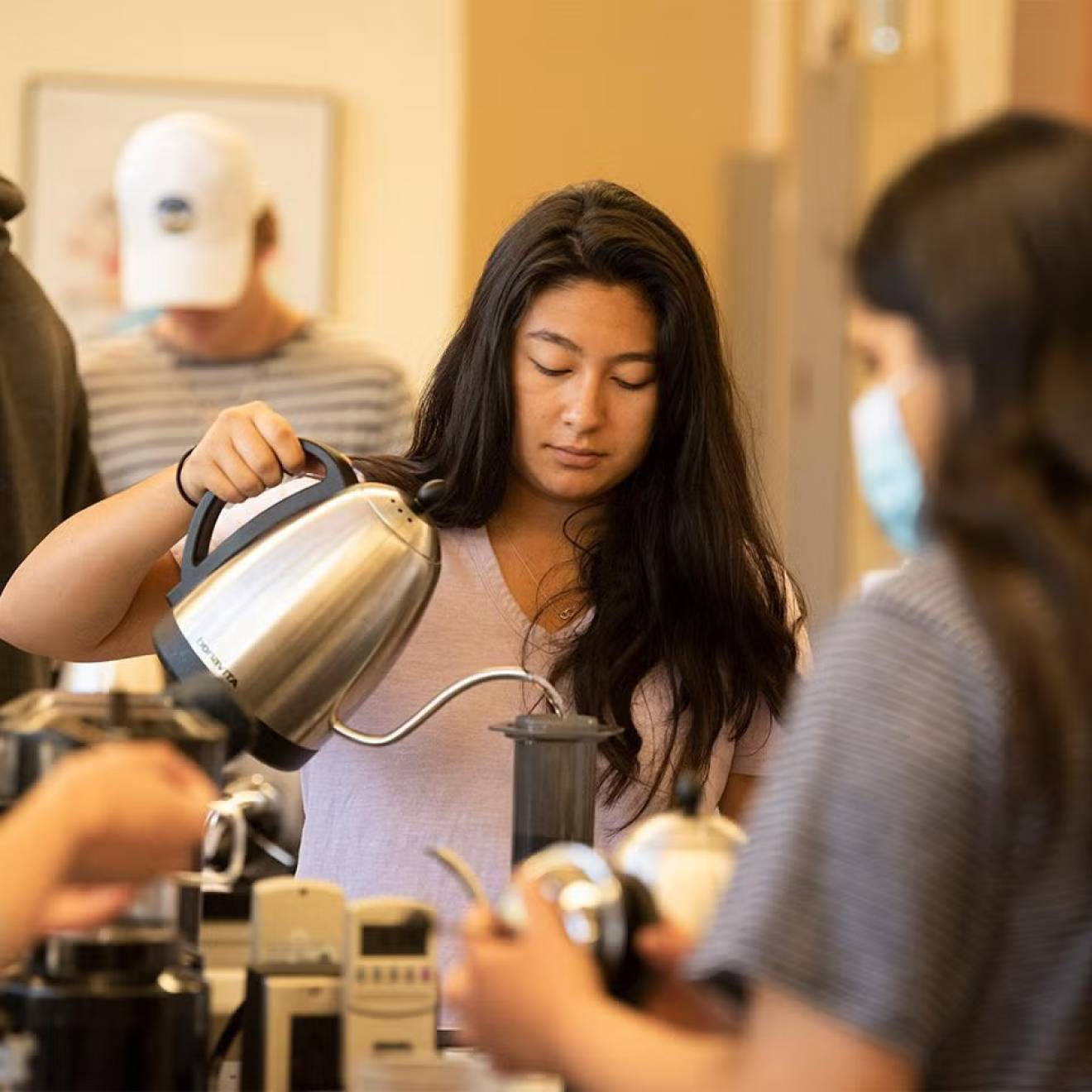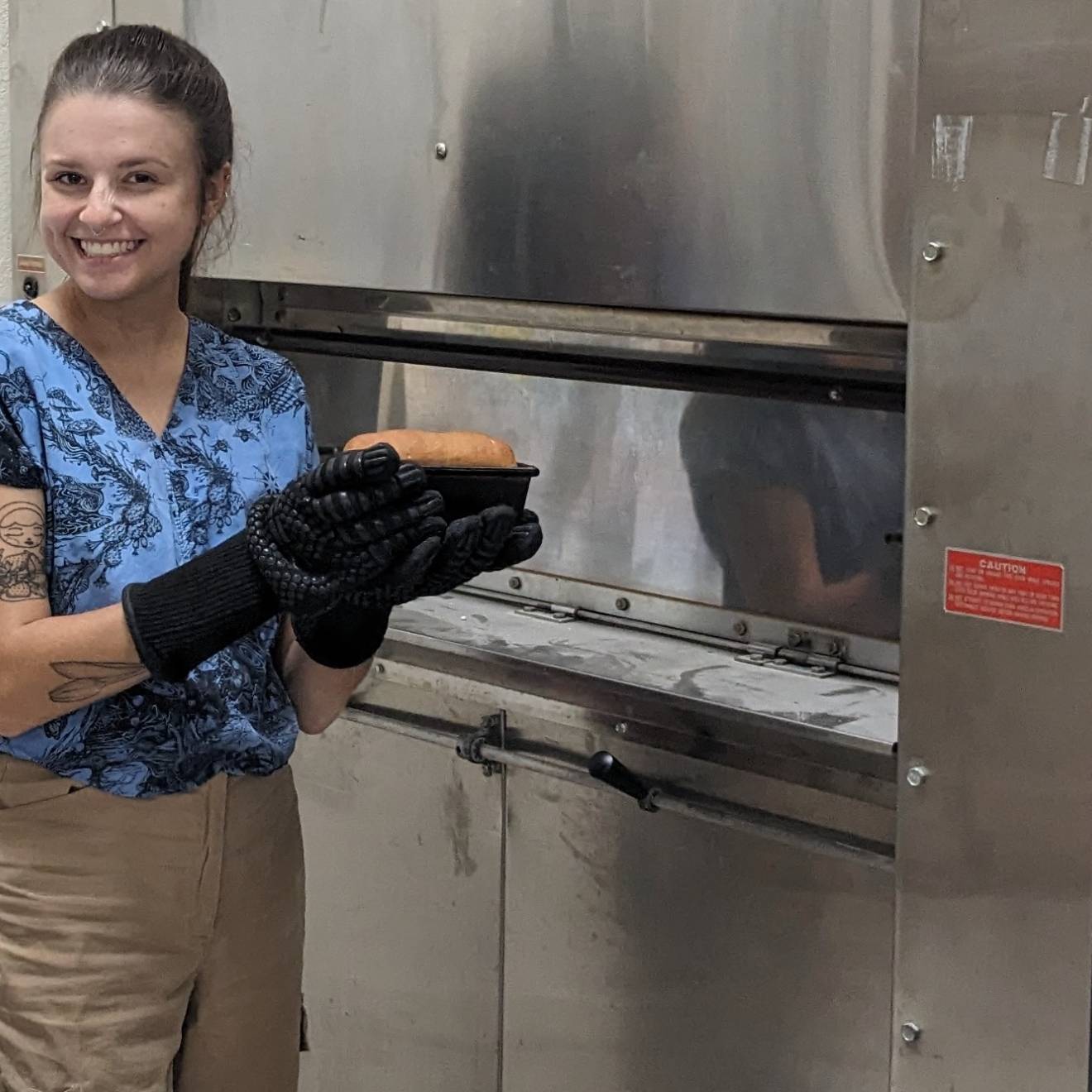Martha Brown, UC Santa Cruz

Drawing on nearly 50 years of teaching organic farming and gardening, the staff of the UC Santa Cruz Farm & Garden Apprenticeship and invited authors have developed an updated and expanded resource for instructors based on many of the skills and concepts taught in UCSC’s annual Apprenticeship in Ecological Horticulture program. Teaching Organic Farming & Gardening: Resources for Instructors, 3rd Edition addresses practical aspects of organic farming and gardening, applied soil science, and social and environmental issues in agriculture.
New features of the third edition include revised and expanded lecture outlines, new demonstrations and exercises, detailed narrative supplements to support lecture topics, and new appendices and illustrations. Although much of the material has been developed for field or garden demonstrations and skill building, most of the units can also be tailored to a classroom setting.
The 700-page manual was produced by UCSC’s Center for Agroecology & Sustainable Food System and is designed for a wide audience of those involved in teaching farming and gardening skills and sustainable agriculture concepts, including colleges and universities with sustainable agriculture programs, student farms or gardens, and on-farm education programs; urban agriculture, community garden and farm training programs; farms with internships or apprenticeships; agriculture extension stations; school gardening programs; organizations such as the Peace Corps, U.S. AID, and other groups that provide international training in food growing and ecological growing methods; and master gardener programs.
Copies of the teaching guide can be purchased at cost (see ordering details, below), and all of the text is also available free online in pdf files, supplemented by PowerPoint-style presentations and video links for many of the units. The material can be accessed at casfs.ucsc.edu/about/publications/Teaching-Organic-Farming/index.html.
Part one of the manual, Organic Farming and Gardening Skills and Practices, emphasizes the “how-to” aspects of organic gardening and farming, including propagation, irrigation, tillage, transplanting and compost production. This 11-unit section also introduces students to critical skills and considerations in the management of soil fertility and agricultural pests (arthropods, diseases and weeds) in organic systems. The information included in the manual is based on certified organic production practices that meet or exceed the National Organic Program (NOP) standards. Included throughout is an overview of principles and practices used in NOP-certified production.
Part two, Applied Soil Science, covers basic information on soil chemistry, soil physical properties, and soil biology and ecology, providing a more detailed overview of the underlying scientific principles that inform many of the organic farming practices covered in part one.
Part three, Social and Environmental Issues in Agriculture, first outlines the history and development of agriculture in the U.S. and then introduces students to social and environmental issues associated with conventional agriculture practices and the current organization of the food system. This section also introduces the concept of sustainable agriculture and current food justice efforts, and some of the existing obstacles to more sustainable food and agriculture systems.
Teaching Organic Gardening and Farming: Resources for Instructors is designed to be placed in a 3-inch, three-ring binder so that sections can be easily removed and copied for class use. It is available from the Center for Agroecology & Sustainable Food Systems for $55 plus $5 for shipping in the U.S. (please inquire about international shipping costs). Price includes tax and handling; binder not included.
To order, send a check or money order made payable to UC Regents to: CASFS, 1156 High St., Santa Cruz, CA 95064, attn: Teaching Manual. Please be sure to include your mailing address. If you have questions about the resource guide, or questions about ordering, please email casfs@ucsc.edu. Note that we cannot accept credit card payments.
Generous support from the Gaia Fund, the USDA Beginning Farmer and Rancher Development Program, Western Sustainable Agriculture Research and Education (WSARE), the Joseph and Vera Long Foundation, and the Eucalyptus Foundation funded the resource guide’s development.

